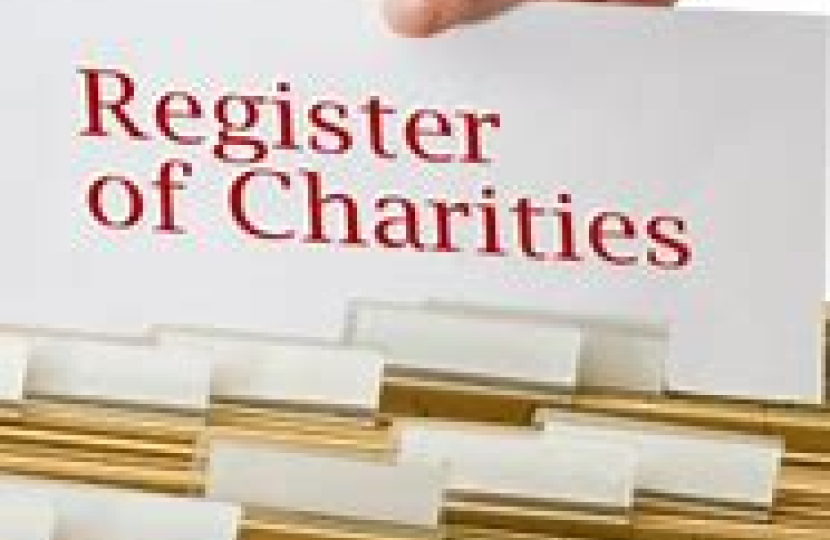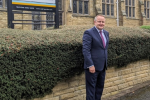
With figures from the national fraud reporting centre showing that almost £350,000 of charitable donations ended up in the pockets of criminals over the festive period last year, Clwyd West MS Darren Millar has joined forces with charity regulators and Action Fraud to help people in Clwyd West ensure they give to genuine registered charities this Christmas.
Action Fraud, the Charity Commission, and the Fundraising Regulator, have warned that while the vast majority of fundraising appeals and collections are genuine, criminals can set up fake charities, or even impersonate well-known charitable organisations, to deceive victims.
By giving to a registered, regulated charity this Christmas, people in Clwyd West can have assurance that their funds will be accounted for in line with charity law.
Darren said:
“This year has been the most challenging yet for charities who depend on the donations they receive to carry out their vital work. It is therefore essential that we ensure that they receive every penny that is donated to them.
“I therefore urge all those who are planning to make a donation this Christmas to be extra vigilant against ‘charity’ scams. Together, we can look after those in Clwyd West who need our help.”
Pauline Smith, Head of Action Fraud, said:
“Charities do incredibly important work, helping those in greatest need, especially at this time of year. Unfortunately, criminals will try to abuse the generosity and goodwill of others and this can have a huge financial impact on charities and the good causes they support.
“We would encourage people not to be put off donating to charities, but instead to be vigilant. Make sure you do your research and follow our simple steps to ensure you’re giving your money to a legitimate charity. Don’t let your donations end up in the wrong hands this Christmas.”
The Charity Commission has previously warned that the pandemic has created more fertile ground for fraudsters. Action Fraud reported earlier this year that it had received reports of a scam email, purporting to be from HM Government, asking for donations to the NHS as part of a ‘nationwide appeal in efforts against coronavirus’.
Take the following steps to make sure your donations go to the right place:
- Make sure the charity is genuine before giving any financial information. Look for the registered charity number on their website. You can check the charity name and registration number at https://www.gov.uk/find-charity-information.
- You can also check if a charity is registered with the Fundraising Regulator. All charities registered here have made a commitment to good fundraising practice: https://www.fundraisingregulator.org.uk/directory.
- If you’re approached by a collector on the street or at your door, ask to see the collector’s ID badge. You can also check whether the collector has a licence to fundraise with the local authority, or has the consent of the private site owner.
- Don’t click on the links or attachments in suspicious emails, and never respond to unsolicited messages and phone calls that ask for your personal or financial details – even if it’s in the name of a charity.
- To donate online, type in the address of the charity website yourself rather than clicking on a link. If in any doubt, contact the charity directly about donating.
- Be cautious when donating to an online fundraising page. Fake fundraising pages will often be badly written or have spelling mistakes. When donating to an online fundraising page, only donate to fundraising pages created by someone you know and trust.
After making these checks, if you think that a fundraising appeal or collection is fake, report it to Action Fraud online at actionfraud.police.uk or by calling 0300 123 2040.
